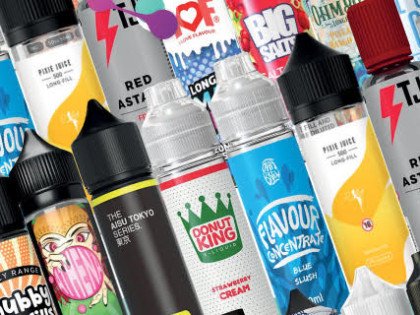The first paper was submitted by a research team at the Roswell Park Comprehensive Cancer Centre in Buffalo to the Nicotine and Tobacco Research journal. The study, “Comparing POD and MOD ENDS Users' Product Characteristics, Use Behaviors, and Nicotine Exposure”, compared pod-style electronic nicotine delivery systems (ENDS) with traditional mod/atty set ups.
The team, led by Professor Maciej Goniewicz, wanted to compare the two as they are associated with different styles of vaping – pods containing high strength nicotine salts for mouth-to-lung use, often containing high concentration nicotine salt juice, and the direct-to-lung alternative that typically has 3-6mg/ml liquids.
“Data from the initial visit of a prospective observational study of exclusive ENDS users compared MOD and POD users. Participants completed questionnaires on demographic characteristics, patterns of ENDS use, and ENDS features. A urine sample was collected to test for cotinine and an ENDS liquid sample was collected to test for nicotine and salts. Puff topography was captured during an ad libitum bout at the end of the session.”
They found that vapers adopted compensatory behaviours – if the juice had a low concentration of nicotine they either vaped more or took bigger draws at higher wattages.
They concluded: “It is possible that MOD ENDS users will be exposed to more harmful constituents through inhaling larger quantities of aerosol generated at higher temperatures" than pod device users.
The second paper comes from a Belgian team. Published in the International Journal of Environmental Research and Public Health, “When Less is More” also looked at compensatory behaviour when nicotine concentration is changed.
They looked at Dutch vapers who used high strength liquids and compared them to low concentration juice Belgians.
They concluded: “Among vapers, different vaping typologies may exist, depending on subcultural and/or geographic parameters. As a consequence of choosing low nicotine concentrations and consuming more e-liquid, the Belgian vapers may have a greater potential to expose themselves to larger quantities of harmful or potentially harmful constituents (HPHCs) released during vaping”.
Jonathan Foulds PhD (not part of either research team) commented: “So, demonising (or banning) pod devices simply on the basis of their high nicotine concentration (or banning >20 mg/ml in Europe and some other countries), is based on a false premise (nicotine concentration=absorption) and may result in greater toxicant exposure.”
References:
- Comparing POD and MOD ENDS Users' Product Characteristics, Use Behaviors, and Nicotine Exposure – https://pubmed.ncbi.nlm.nih.gov/36073762/
- When Less is More: Vaping Low-Nicotine vs. High-Nicotine E-Liquid is Compensated by Increased Wattage and Higher Liquid Consumption - https://www.mdpi.com/1660-4601/16/5/723
Dave Cross
Journalist at POTVDave is a freelance writer; with articles on music, motorbikes, football, pop-science, vaping and tobacco harm reduction in Sounds, Melody Maker, UBG, AWoL, Bike, When Saturday Comes, Vape News Magazine, and syndicated across the Johnston Press group. He was published in an anthology of “Greatest Football Writing”, but still believes this was a mistake. Dave contributes sketches to comedy shows and used to co-host a radio sketch show. He’s worked with numerous start-ups to develop content for their websites.
Join the discussion
Harm Reduction For The Rich
The United Kingdom risks becoming a harm reduction country only for the wealthy, according to Michael Landl of the World Vapers’ Alliance
Longfills as an Alternative to Disposables
The disposable vape ban will impact many people, but there’s no reason to be concerned… Grab yourself a pod kit and a Longfill and you’ll be back to vaping the way you want to, just in a cheaper, more environmentally friendly and legal way.
COP10 is a Threat to Safer Nicotine Products
The EU obscures its position on low-risk alternatives to smoking before the WHO COP10 conference in Panama, starting Monday
Nicotine Is Not A Culprit
Planet of the Vapes has always encouraged smokers to use the quit product that works best for them, and snus is a product that seems to be unfairly blocked because it contains nicotine






-listing400.jpg)




